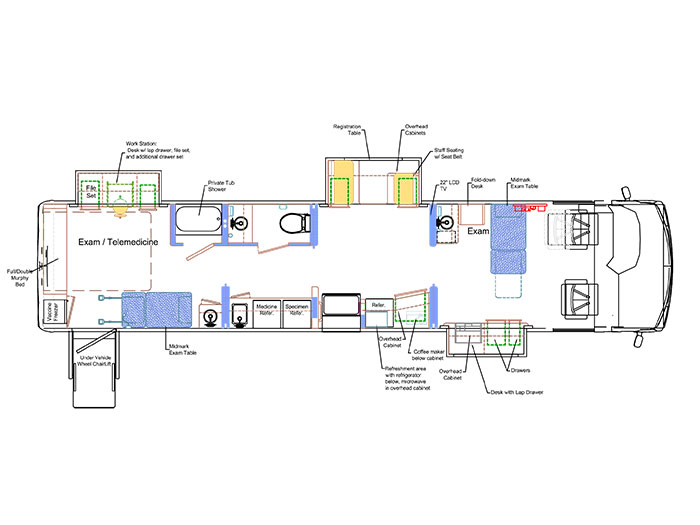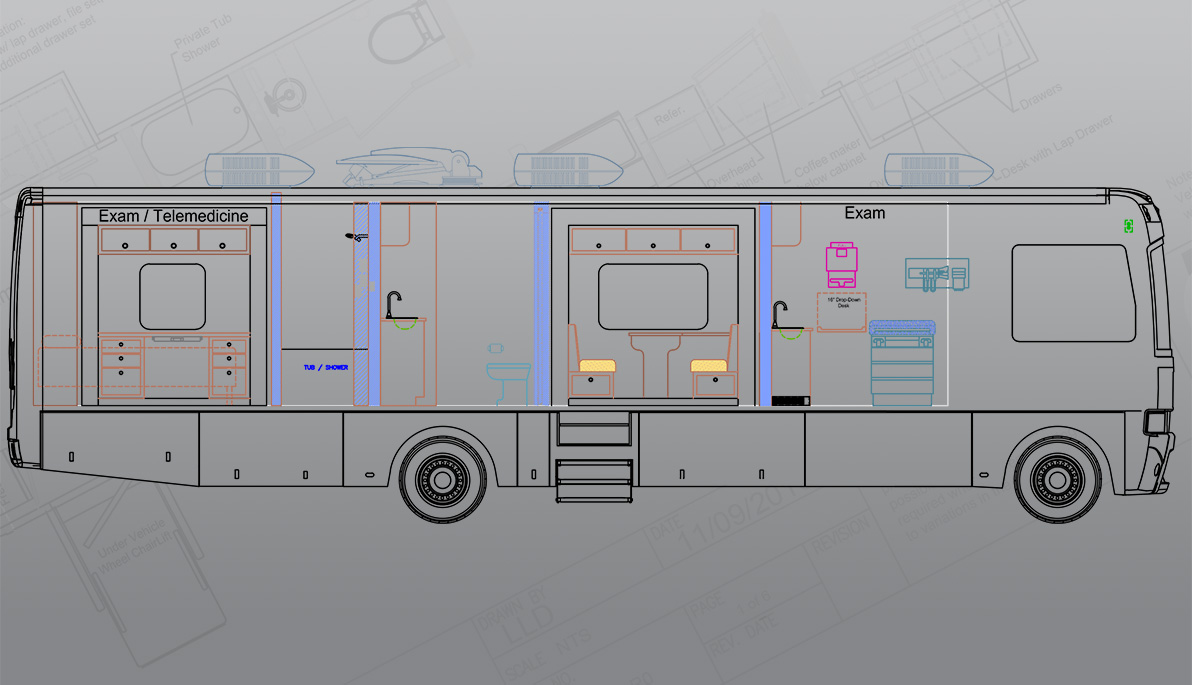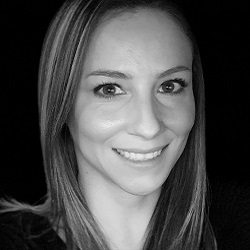News
Medicine on the Go
May 21, 2018
Pictured: A drawing of the exterior of the Delta Care-a-van.
Healthcare outcomes in areas of the Mississippi Delta Region are among the worst in the nation, leaving many communities with few choices for medical services. Soon, however, residents will have an easier way to see a doctor.
With the help of a United States Department of Agriculture Delta Healthcare Service Grant, NYIT College of Osteopathic Medicine (NYITCOM) at Arkansas State University (A-State) will develop a mobile medical clinic known as the “Delta Care-a-van,” which will offer preventative care services and health education to patients free of cost and without an appointment. The team will be joined by others at Arkansas State College of Nursing and Health Professions, University of Arkansas for Medical Sciences (UAMS) Northeast Family Medicine Residency Program, and St. Bernards Medical Center Internal Medicine Residency Program.
“The Delta Care-a-van program will allow us to remove several of the obstacles to healthcare that have prevented local residents from receiving the health services and education they deserve and need,” said Shane Speights, D.O., site dean and associate professor at NYITCOM at A-State.

The interior of the Delta Care-a-van.
Beginning late summer 2018, the mobile clinic will travel to seven northeast Arkansas rural communities, including Harrisburg, Leachville, Lepanto, Manila, Piggott, and Marked Tree. The funds ($828,748 in federal shares and $228,604 in kind) will help cover health education and screenings for untreated and chronic conditions including obesity, diabetes, and anxiety/depression; patients will also receive referrals to regional physicians for follow-up care.
The Delta Care-a-van will include two examination rooms and state-of-the-art telemedicine technology. It will also serve as a training site for medical students from NYITCOM at A-State, resident physicians from UAMS and St. Bernards Medical Center, and nursing and social work students from Arkansas State University.
“This service will provide valuable clinical training to an ‘army’ of future physicians and healthcare professionals and will also expose them to the joys, opportunities, and challenges of rural practice,” said Speights.
The students will conduct screenings and wellness examinations to monitor blood pressure, blood glucose, and signs of mental health conditions under the guidance of NYITCOM at A-State faculty and trained medical experts.
Patients who require further treatment will be referred to local providers or receive telemedicine consultations on board the mobile clinic. NYITCOM at A-State is well versed in distance medicine: It was among the first schools in the United States to train first-year medical students in telemedicine.
“Our college is excited to be involved in this interprofessional education and service delivery project that will impact many of the smaller towns in our region. The health of our communities is so important to our economic future,” said Susan Hanrahan, Ph.D., dean of Arkansas State University College of Nursing and Health Professions. “I think we can make a difference.”





